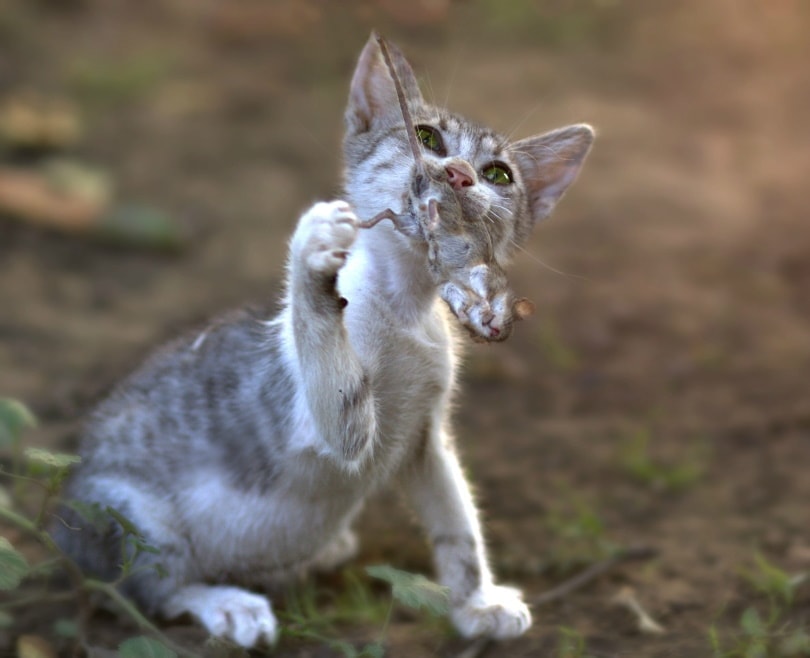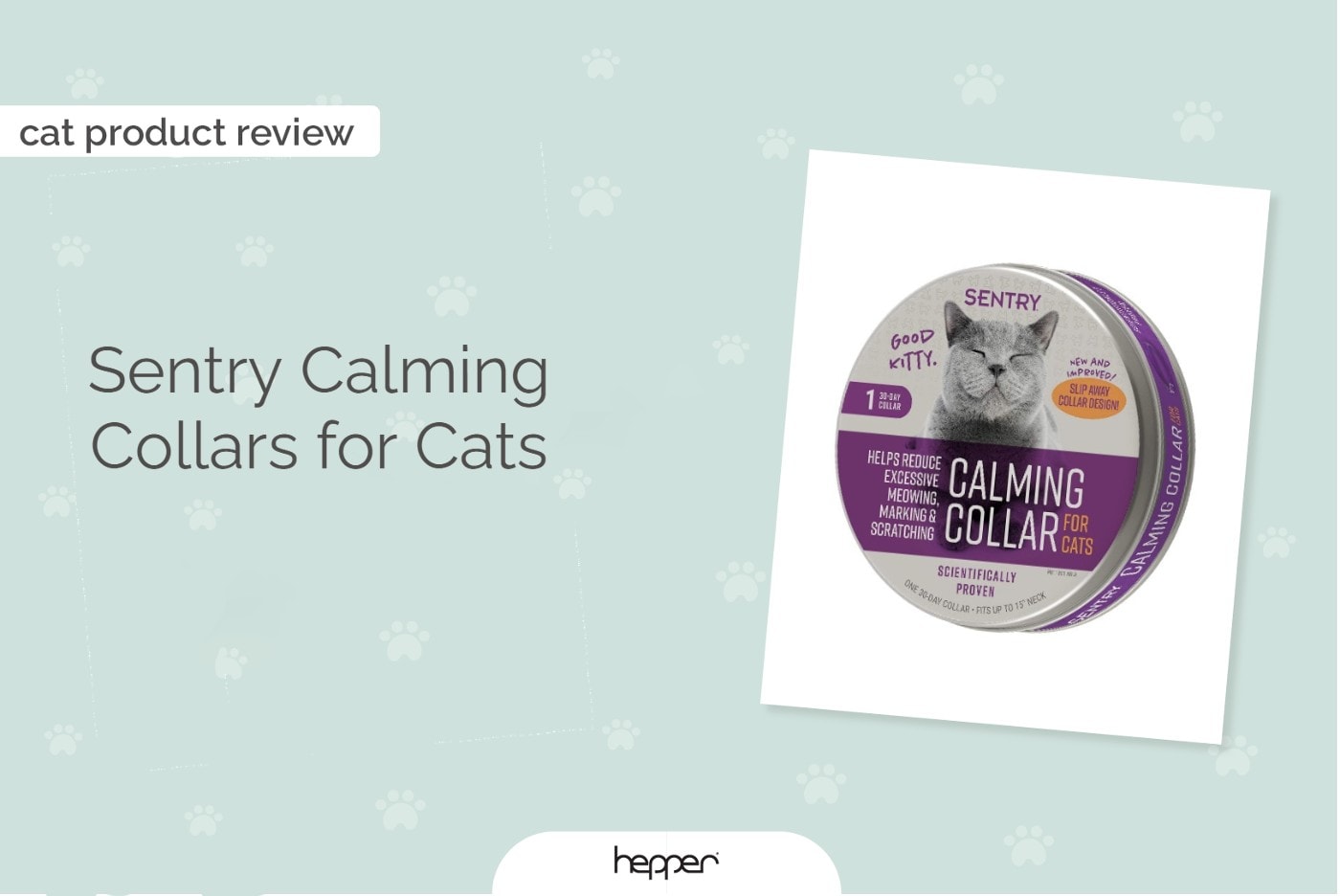Can Cats Eat Crickets? Nutritional Facts & Safety Guide

Updated on

A new trend is emerging in the pet food industry—insect protein-based diets. Some companies are making cat food out of insect protein rather than traditional chicken, beef, or fish options in a bid to work against the heavy environmental impact of traditional livestock. So it’s no secret that bugs such as crickets have a lot of protein in them, but when your cat is running around eating whole crickets in our backyard, should you be worried?
Yes, cats can eat crickets. Crickets themselves are not toxic for cats and may actually present some health benefits. But there are a handful of risks to a cat’s consumption of crickets that should be considered closely! Read on as we go into more detail (we hope you’re not squeamish!)
Benefits of Crickets for Cats
Generally, crickets are safe for cats to eat. Crickets possess a high protein density, hence their upcoming use as dietary protein. But crickets are so small that each cricket will offer little nutritional benefit to a cat, and they would have to eat large amounts to get any real gain!
Crickets have an exoskeleton that is made up of chitlin. Chitlin is an excellent source of prebiotic fiber, which can assist in keeping a cat’s digestive system functioning well. Crickets also have large doses of iron, vitamin B-12, and omega fatty acids, all vital parts of a healthy cat diet. The fats especially are beneficial to cats as they promote healthy skin and coats to keep our feline pals at their best.
While crickets are okay to eat when your cat inevitably catches them in the backyard, they should not be purposely offered as part of their diet. A complete commercial cat diet should also be offered to ensure your cat has prime nutrition to function well.
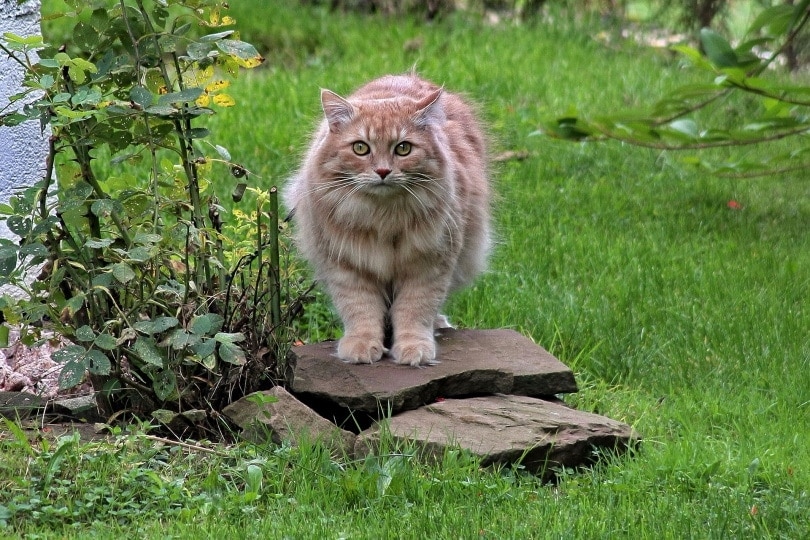
Risks of Crickets for Cats
Gastrointestinal Upset
Despite their nutrition, the composition of crickets is unlike the natural prey of a cat which hunts mainly mammals. As such, a cat’s digestive tract may not bode well with the ingestion of crickets, particularly if your cat has a notoriously sensitive stomach. The hard exoskeleton of cricket can prove to be difficult to digest and may not break down properly, causing impactions in the digestive tract.
Sharp pieces of the exoskeleton may also cause minor injuries and bleeding within the intestines. These irritations usually pass on their own after a few days.
Parasites
There are several internal parasites that insects like crickets can carry, and these can potentially be transferred to a cat when ingested. While this is a possibility, the likelihood is generally low due to the small parasite burden in a cricket compared to the immune system of a large cat. Cats who are immunocompromised will be at higher risk of picking up parasites from insects.
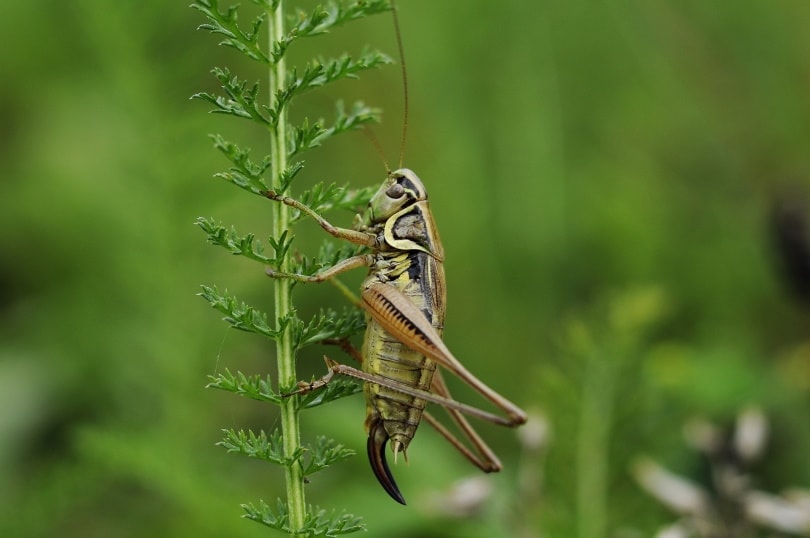
Chemical Toxicity
Another concern of many cat owners whose beloved pets are eating random bugs is the potential for said bugs to contain insecticides. We like to keep insects out of our homes as much as possible and many of us utilize insecticides to do so. If your cat does eat a cricket that is succumbing to insecticide poisoning, the insecticide will then be transferred to your cat.
In most cases, this is not harmful as the amount of toxic chemicals is so minimal that it doesn’t have any effect on the body of the cat. That being said, if your cat directly ingests insecticides, it should see a vet immediately.
Why Does My Cat Chase Bugs?
Since bugs are not part of the natural diet of your cat, why do they love to chase them so much? And why on earth do they like to eat them? Bug hunting seems to have less to do with biology, seeing as they don’t serve cats nutritionally, instead it’s more to do with instinctual behavior.
Bugs, including crickets, are fun for cats to chase simply because they move quickly and in unpredictable ways. Just like some of your cat’s favorite toys, their movement triggers the predator drives in a cat’s brain. Playing with bugs is an expression of their natural hunting behaviors.
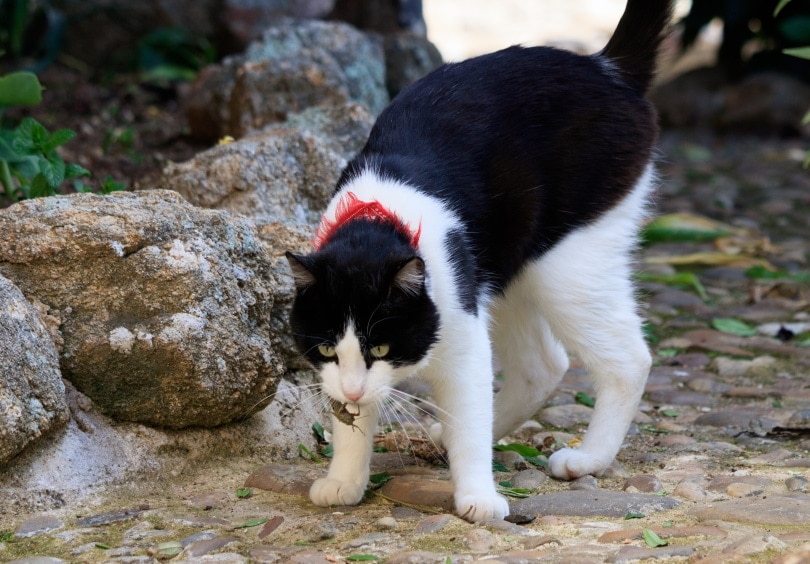
Do Crickets Bite Cats?
Crickets are known for their ability to bite. They have two sets of jaws, and the biting response is one they use to defend themselves. More common, smaller crickets are small enough that they will rarely be able to puncture your cat’s skin. Most cats are also protected by their dense fur.
Larger cricket species such as locusts are more likely to bite cats simply due to their size. Bites can cause stinging and raised red sores. Cats with sensitive skin may develop a reaction to a cricket bite. Open sores can also run the risk of becoming infected.
Other insects that may harm your cat include:
- Bees and wasps
- Spiders
- Ants
- Fleas, lice, and ticks
Now that you know what you can safely feed your cat, it’s just as important to find a bowl that supports their health and well-being. With whisker-friendly bowls and a wide tray to catch any spills, our Hepper NomNom Cat Bowl is our favorite option.
Final Thoughts
Broadly speaking, a cat eating a cricket is nothing to worry about. Your cat’s habit of chasing insects in the yard is not only fun and stimulating for them but relatively harmless, but they may be at risk of bites and stings from some insects.
Crickets can offer your cat some nutritional benefits but there are also a range of associated risks with whole insects. If your cat’s stomach is upset by insects you should try to keep them from eating any crickets.
See also:
Featured Image Credit: Piqsels


